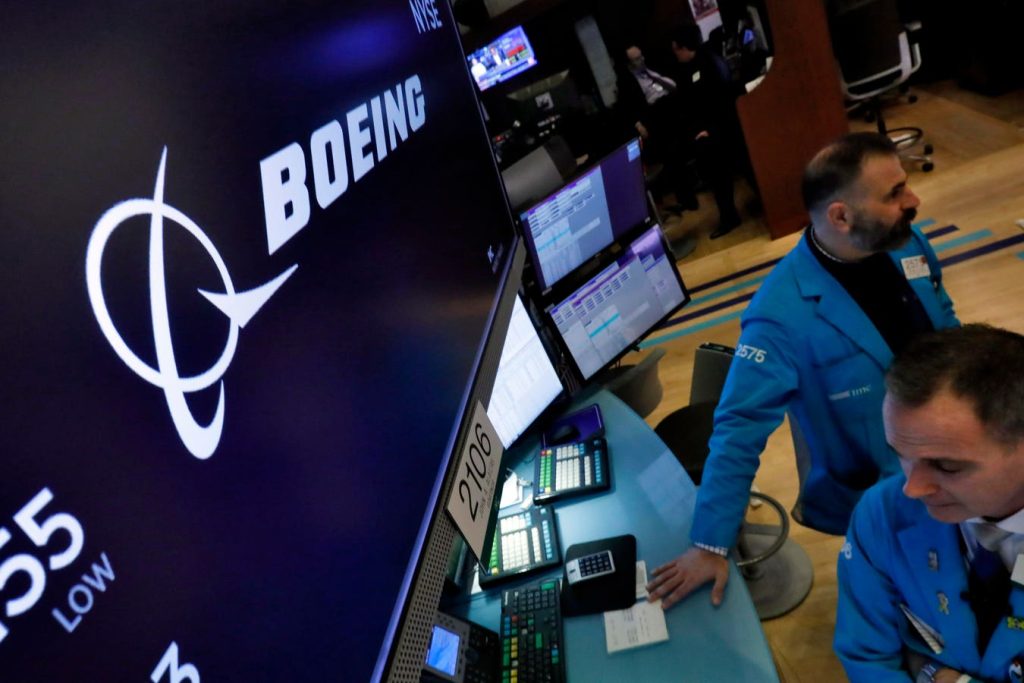Boeing’s financial woes have reached historic proportions, culminating in a staggering $11.8 billion loss for 2024, marking the second largest annual loss in the company’s history. This dismal performance extends the company’s losing streak to six consecutive years, a period marred by a series of crises and setbacks that have eroded investor confidence and tarnished the aerospace giant’s reputation. Several factors contributed to the fourth-quarter loss of $3.8 billion, including a seven-week strike by machinists, which disrupted production of the crucial 737 Max aircraft. Persistent delays and cost overruns in key defense programs further exacerbated the financial strain. Furthermore, ongoing production issues with both the 737 Max and 787 Dreamliner continue to plague the company, adding to the mounting losses. The cumulative loss since 2019, the year of the 737 Max grounding following two fatal crashes, has reached an eye-watering $35.7 billion.
This dismal performance solidifies Boeing’s position as the biggest loser in the S&P 500 index since 2019. While other companies, like Uber and Carnival, have also experienced significant losses during this period, their financial trajectories appear to be improving. Uber is expected to report a profit for 2024, and Carnival’s 2024 net income of $1.9 billion has reduced its cumulative losses to $21 billion. In the broader context of the past 25 years, Boeing’s losses, while substantial, are not unprecedented. When adjusted for inflation, the company’s $39.4 billion cumulative loss since 2019 ranks sixth among S&P 500 constituents. American International Group (AIG) and General Motors hold the top two spots, having incurred inflation-adjusted losses of $162 billion and $130 billion, respectively, during periods of severe financial distress.
While Boeing’s cumulative losses are substantial, its ranking shifts when considering the duration of the losing streak. Among the 27 S&P 500 companies that have experienced losses for at least six consecutive years since 1999, Boeing holds the unenviable top position. The second-place holder, the former parent company of TXU, recorded an inflation-adjusted loss of $28.8 billion between 2010 and 2015, eventually succumbing to bankruptcy. However, even in this context, Boeing’s six-year losing streak is dwarfed by the endurance of other companies that have weathered far longer periods of unprofitability. DEX, an industrial parts and repair company, endured an 18-year losing streak before returning to profitability in 2019. SBA Communications and LiveNation both experienced 17-year stretches of red ink.
Despite this protracted period of financial difficulty, institutional investors have continued to support Boeing, demonstrating confidence in the company’s long-term prospects. This confidence stems from Boeing’s substantial order book, comprising 5,595 aircraft, which represents a significant potential revenue stream. Bolstered by this positive outlook, the company successfully raised $24 billion late last year through a combination of stock and convertible debt offerings. This infusion of capital provides Boeing with a much-needed financial cushion as it works to overcome its operational challenges. Investors are betting on the new CEO, Kelly Ortberg, to revitalize the company’s production lines and restore efficiency.
The road to recovery, however, is likely to be long and arduous. Despite the influx of capital and the optimism surrounding the new CEO, the company’s financial challenges are far from resolved. CFO Brian West has cautioned investors that Boeing expects to record negative cash flow for the full year 2025. This projection indicates that the company’s losing streak is unlikely to end in the near term. The combination of production delays, cost overruns, and the lingering impact of the 737 Max grounding continues to weigh heavily on Boeing’s financial performance. The company faces the daunting task of addressing these deep-seated issues while simultaneously navigating a volatile global economic environment.
In conclusion, Boeing’s recent financial results paint a bleak picture of a company grappling with significant operational and financial challenges. The $11.8 billion loss in 2024, coupled with the ongoing production issues and delays, underscores the depth of the company’s struggles. While institutional investors remain hopeful, the near-term outlook remains uncertain. The company’s ability to turn the tide will depend heavily on the successful execution of its recovery plan, which includes streamlining production, addressing quality control issues, and restoring customer confidence. The road ahead promises to be challenging, and the company’s stakeholders will be closely monitoring its progress in the coming months and years. Only time will tell if Boeing can regain its footing and return to its former glory as a leading player in the aerospace industry.










